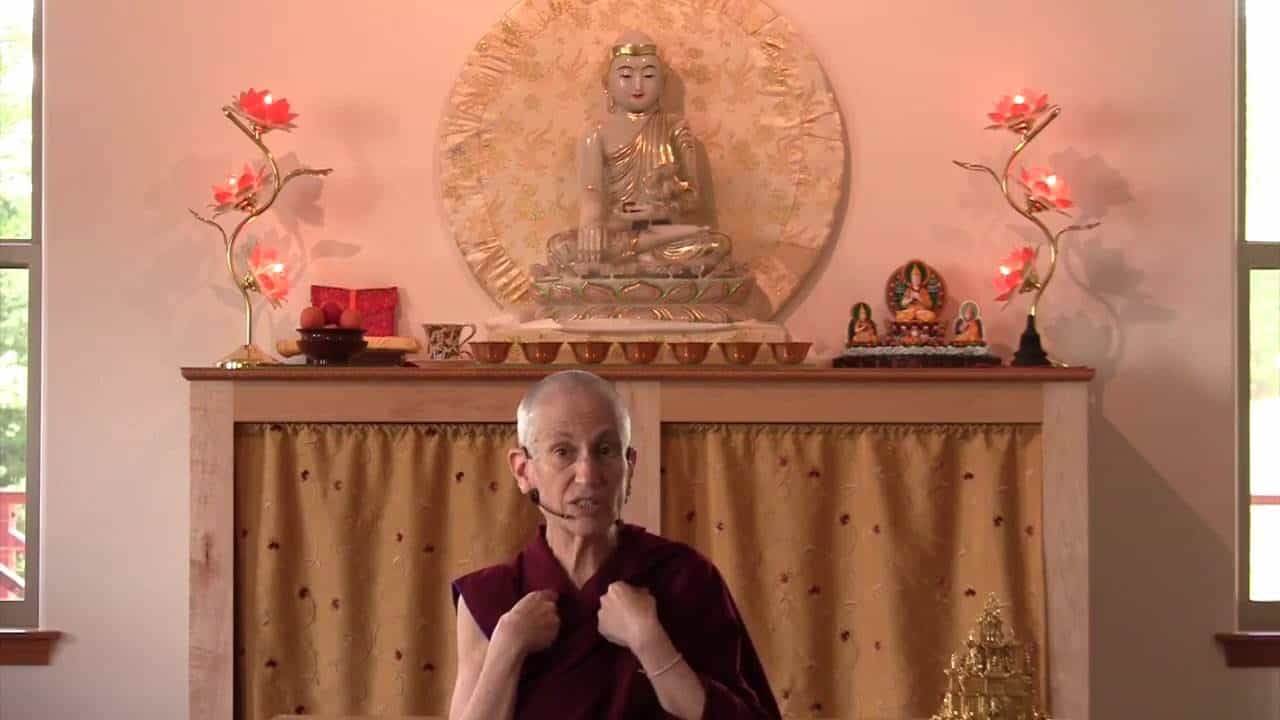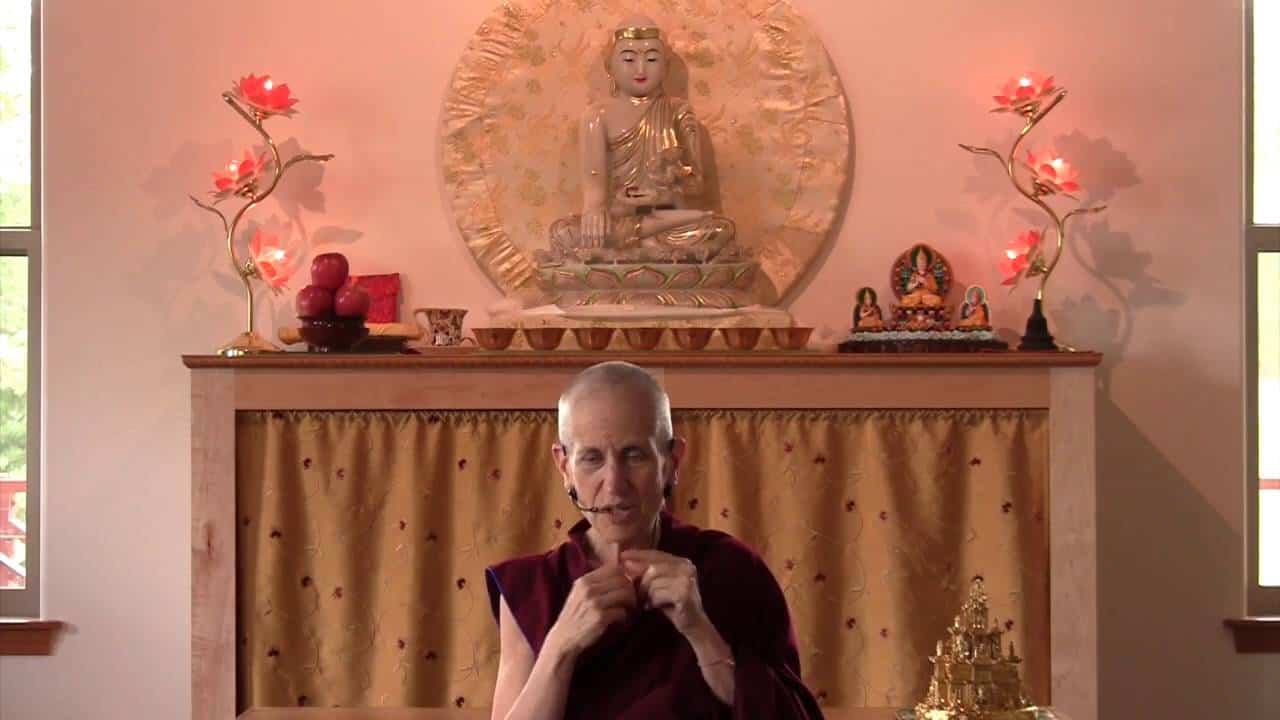Afflictions and the accumulation of karma
Afflictions and the accumulation of karma
The text turns to training the mind on the stages of the path shared with intermediate level practitioners. Part of a series of teachings on the Gomchen Lamrim by Gomchen Ngawang Drakpa. Visit Gomchen Lamrim Study Guide for a full list of contemplation points for the series.
- The disadvantages of the afflictions
- How you accumulate karma through the afflictions
- Intention karma and intended karma
- perceptible and imperceptible karma
- Invariable karma
- Karma accumulated by arya beings and those who have entered a path
Gomchen Lamrim 50: Afflictions and karma (download)
Contemplation points
Go through the six (or ten) root afflictions and really examine the disadvantages of each, listed below. Reflect on how you have seen these disadvantages in your own life and in the world around you. How has it caused suffering for yourself and others?
- Afflictions destroy you.
- Afflictions destroy others.
- Afflictions destroy your ethical discipline.
- Due to afflictions, your property declines and is depleted.
- Due to afflictions, teachers and protectors admonish you.
- Due to afflictions, you quarrel, lose your reputation and are reborn in a condition of non-liberty.
- Due to afflictions, you lose [the virtue] gained and not yet gained, and are despondent.
- Due to afflictions, your life becomes joyless, you lack confidence, you die with regret and your spiritual aims are not fulfilled.
Conclusion: Having reflected extensively on these disadvantages, seeing how afflictions can lead to only suffering and unhappiness, and recognizing the they will continue to destroy your happiness until you transform your own mind, resolve to watch vigilantly for these afflictions and apply the antidotes quickly.
Venerable Thubten Chodron
Venerable Chodron emphasizes the practical application of Buddha’s teachings in our daily lives and is especially skilled at explaining them in ways easily understood and practiced by Westerners. She is well known for her warm, humorous, and lucid teachings. She was ordained as a Buddhist nun in 1977 by Kyabje Ling Rinpoche in Dharamsala, India, and in 1986 she received bhikshuni (full) ordination in Taiwan. Read her full bio.


